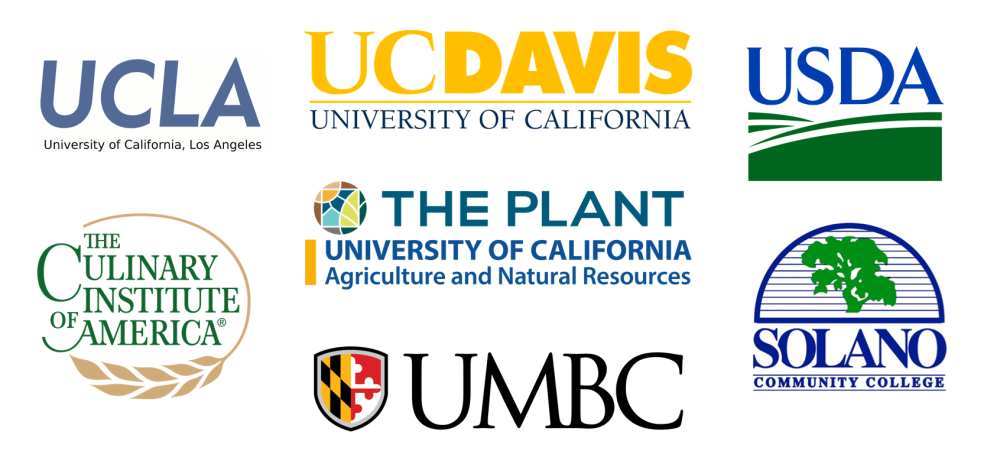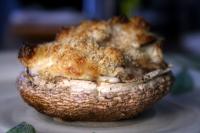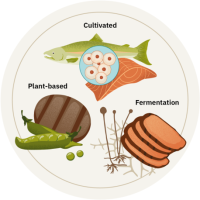The Integrative Center for Alternative Meat and Protein (iCAMP) is dedicated to advancing the development of alternative proteins with the potential to transform the global food system and strengthen food security. Our mission is to accelerate the commercialization of these protein sources to meet the rising demand for nutritious, appealing, and affordable protein-rich foods. In response to a growing global population and increasing pressures on traditional food systems, we are developing innovative approaches to make protein production more efficient, nutritionally robust, and aligned with consumer preferences. Through the application of advanced technologies and cutting-edge research, we aim to improve protein production systems that not only enhance nutritional quality but also contribute to a more secure, resilient, and responsive food supply.
iCAMP Mission Statement:
Create transformative knowledge and innovation to accelerate the commercialization of sustainable alternative proteins and fulfill the global need predicted by 2050
Partnering Organizations
iCAMP is a collaborative initiative, bringing together 7 leading institutions in food innovation and bioprocessing. Our partners include:
- University of California, Davis (UCD)
- University of California, Los Angeles (UCLA)
- University of California, Agriculture & Natural Resources (UCANR)
- United States Department of Agriculture (USDA)
- The Culinary Institute of America (CIA)
- University of Maryland, Baltimore County (UMBC)
- Solano Community College

Research Areas
At iCAMP, our research spans a broad range of innovative areas aimed at accelerating the development and commercialization of sustainable alternative proteins. Our interdisciplinary team of over 50 researchers is dedicated to solving some of the most critical challenges in food protein and fat innovation.
Plant-Based Meats, Fats, and Proteins

We are committed to advancing scalable, nutritious plant-based protein sources to meet the growing global demand for sustainable food. Our research includes:
- Plant Breeding to enhance taste, texture, and nutritional profiles.
- Leveraging Agricultural Side Streams to provide new feedstocks for fungal-based fermentations and cell-based cultures.
- Improving Manufacturing & Processing to optimize production systems, reduce costs, and increase accessibility.
- Developing & Incorporating Healthy Fats to improve the nutritional quality of plant-based products, ensuring they meet consumer health expectations.
Fungal-Based Meats, Fats, and Proteins

We utilize innovative approaches such as biomass fermentation and precision fermentation to develop high-quality fungal proteins as sustainable alternatives to traditional animal-based proteins. Our work focuses on:
- Enhancing and expanding protein options derived from fungal biomass.
- Developing Healthy Fats & Optimizing Nutrition from fungal based products that meet consumer health and culinary expectations.
- Leveraging the UC Davis Phaff Yeast Culture Collection, the 4th largest yeast collection in the world with over 9000 microbial strains derived from food.
Cell-Based Meats and Fats

As leaders in the field of cultivated meat research, we are advancing cell culture technologies to develop sustainable solutions that address the growing global demand for protein-rich foods. Our key areas of research in this space include:
- Cell Line Development & Repository: Establishing a robust collection of cell lines to support scalable and reproducible cultivated meat production.
- Media & Process Optimization: Improving growth media and bioreactor processes to enhance the scalability and efficiency of cultured meat production.
- Creating Structure at Scale: Developing technologies to produce structured, tissue-engineered meats that replicate the texture and flavor of conventional meat.
- Assessing Economic Feasibilities: Analyzing the economic viability of cultivated meat, with a focus on cost reduction, scalability, and market readiness.
- The UC Davis Cultivated Meat Consortium: Since 2019, this initiative has focused on advancing cultivated meat technologies, supported by the first US state and federal funding.
Integrated Meat Products & Production

iCAMP's research efforts focus on developing integrated production systems that:
- Combine hybrid products from plant-based, fungal, cell-based meats, fats, and proteins, alongside conventional animal products.
- Optimize cost-efficient feedstocks for more sustainable production.
- Seamlessly integrate into existing food production and distribution networks.
Production Optimization
At iCAMP, we focus on making alternative protein production more efficient, cost-effective, and scalable. Our efforts include:
- Eliminating Key Bottlenecks: Addressing production process challenges to reduce costs and enable scalability
- Scaleup & Feasibility Assessment: Evaluate and optimize production processes for large-scale manufacturing to meet global demand. Key objectives in scaleup include:
- Techno-Economic Analysis (TEA) and Life Cycle Analysis (LCA): Assessing economic viability and sustainability.
- Unit Operation Modeling: Modeling critical production steps to facilitate scaling.
- Technology Development: Advancing biomanufacturing technologies to optimize key unit operations essential for the successful scaleup of alternative protein products.
Sensory, Culinary, Health & Nutrition, and Food Safety
At iCAMP, we focus on the research necessary to ensure alternative proteins meet consumer expectations across multiple dimensions:
- Sensory & Culinary Characteristics: We study the taste, texture, aroma, and appearance of alternative proteins to replicate the sensory experiences of traditional animal-based products.
- Cultural Considerations: We investigate cultural and dietary preferences to ensure alternative proteins are adaptable to diverse global needs.
- Cost Efficiency: Our research optimizes production processes to enhance cost-effectiveness while maintaining product quality.
- Health & Nutrition: We develop products that are rich in essential nutrients, healthy fats, and vitamins, improving the nutritional profile compared to traditional proteins.
- Food Safety: We conduct research to establish rigorous food safety criteria and Good Manufacturing Practices (cGMP) to ensure the highest safety standards.
- Chemical & Physical Characterization: We analyze the chemical and physical properties of alternative proteins to improve product quality, shelf life, and nutritional value.
iCAMP Key Pillars of Work
- Research & Technology Development: Advancing innovative solutions for sustainable production of alternative proteins through scientific and technological breakthroughs.
- Education & Workforce Training: Providing knowledge and skills to equip the next generation of leaders in the alternative protein and sustainable food industries.
- Public Outreach & Policy Development: Promoting awareness and shaping policies to support the growth of sustainable alternative protein systems.
- Industry Partnership & Commercialization: Collaborating with industry stakeholders to bring alternative proteins to market and drive commercialization at scale.